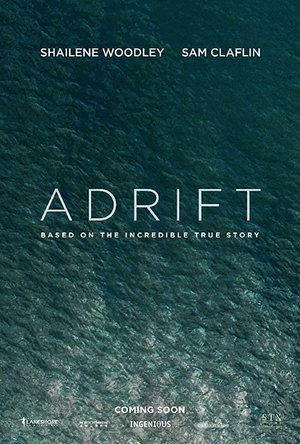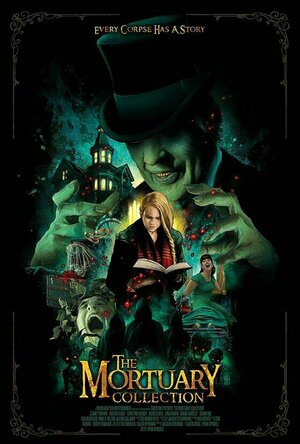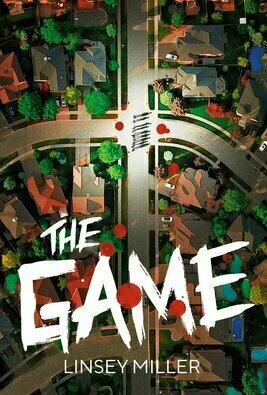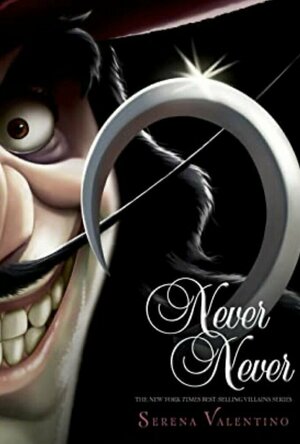Search
Search results
Sean Farrell (9 KP) rated The Blessings in Books
Mar 15, 2018
I had been hearing some positive things about this book around the library and so I decided to give it a read, not knowing what to really expect. It wound up being a very relatable and enjoyable book. There isn't really much by way of a plot, rather each chapter winds up being basically a short story about one member of a very close, extended Irish Catholic Philadelphia family over the course of several decades. They are all connected, and so answers that aren't necessarily provided during the course of one person's "story" wind up being provided during someone else's. Each character is both different enough from the others and fully fleshed-out enough to keep things interesting, and the choice to follow different people in each chapter makes it hard to guess where things may be heading next. There are certainly some surprises in store for members of the family throughout. Growing up with a large family that was very close makes many of the moments immediately resonate with me, and some of the problems faced throughout the course of the novel strike close to home as well. Still, the aforementioned lack of plot makes it feel somewhat uneventful when all is said and done. The Blessings do wind up being a great cast of characters though, and the family's unwavering love for and faith in each other no matter how much life throws at them is a joy to behold, and that alone makes this one of the better works of fiction you might run across this Summer.
Sarah (7800 KP) rated Adrift (2018) in Movies
Jul 10, 2018
A very sad true story
I hadn't read many good reviews for this film so I honestly hadn't been expecting much, but it is actually quite good.
The film works well as it doesn't follow a linear narrative which would've been a little boring. Instead it opts to throw us straight into the immediate aftermath of the disaster, but flashing back to the couple and how they met, and how they came to be at sea. It also helps that Shailene Woodley is a great actress and very engaging and believable. This film wouldn't have worked half as well without her in it. Sam Claflin is perhaps a tad underused and I think there parts of this that maybe go a tad overboard (sorry) on the romance side. The effects may be slightly dodgy at times but the scenes at sea and in the aftermath are so harrowing and disturbing enough that it takes your mind off everything else. There is also a small "twist" in this which even I didn't see coming, which was quite refreshing. My only criticism is that despite it's short run time, the film does drag in a few parts and most of this run time is spent either on the boat or in flashbacks. Very little time is given to the ending so it feels a bit rushed and not quite wrapped up properly.
Overall though a very good and heartwrenching true story. Definitely one that could put you off sailing for life!
The film works well as it doesn't follow a linear narrative which would've been a little boring. Instead it opts to throw us straight into the immediate aftermath of the disaster, but flashing back to the couple and how they met, and how they came to be at sea. It also helps that Shailene Woodley is a great actress and very engaging and believable. This film wouldn't have worked half as well without her in it. Sam Claflin is perhaps a tad underused and I think there parts of this that maybe go a tad overboard (sorry) on the romance side. The effects may be slightly dodgy at times but the scenes at sea and in the aftermath are so harrowing and disturbing enough that it takes your mind off everything else. There is also a small "twist" in this which even I didn't see coming, which was quite refreshing. My only criticism is that despite it's short run time, the film does drag in a few parts and most of this run time is spent either on the boat or in flashbacks. Very little time is given to the ending so it feels a bit rushed and not quite wrapped up properly.
Overall though a very good and heartwrenching true story. Definitely one that could put you off sailing for life!
Sarah (7800 KP) rated Kinky Boots (2006) in Movies
Sep 4, 2018 (Updated Sep 4, 2018)
Fabulous
This is such a quintessentially British film that it’s hard not to love it. It’s full of humour, laughs, drama and is so heartwarming and entertaining. Whilst judgemental Northerners (well north of London) or backwards small British towns/locales in a film isn’t unusual, this film is a fun take on a slightly different true story.
Joel Edgerton is great as Charlie. I wasn’t expecting him to be, but he did very well and his accent was flawless. I actually spent the entire film doubting myself that he was Australian, because he did that well. The star of this film though is undoubtedly Chiwetel Ejiofor. He is an absolute riot as Lola and brings such joy to every scene that he’s in, from the musical numbers to the factory scenes. He seems to be channeling Tim Curry in parts (which isn’t a bad thing) and he’s such a hoot. I don’t think there are many that could pull off Lola quite as well as he has.
I do have a few minor criticisms though. The story itself is pretty predictable, but then would anyone expect any less from such a premise? The film though for me was for a change a little too short. I would’ve happily watched a lot more of this without getting bored.
I’m going to watch the musical of this in the theatre in a few months, and this has really got me excited. Just a shame Chiwetel Ejiofor isn’t appearing in the theatre version, I’d love to see that!
Joel Edgerton is great as Charlie. I wasn’t expecting him to be, but he did very well and his accent was flawless. I actually spent the entire film doubting myself that he was Australian, because he did that well. The star of this film though is undoubtedly Chiwetel Ejiofor. He is an absolute riot as Lola and brings such joy to every scene that he’s in, from the musical numbers to the factory scenes. He seems to be channeling Tim Curry in parts (which isn’t a bad thing) and he’s such a hoot. I don’t think there are many that could pull off Lola quite as well as he has.
I do have a few minor criticisms though. The story itself is pretty predictable, but then would anyone expect any less from such a premise? The film though for me was for a change a little too short. I would’ve happily watched a lot more of this without getting bored.
I’m going to watch the musical of this in the theatre in a few months, and this has really got me excited. Just a shame Chiwetel Ejiofor isn’t appearing in the theatre version, I’d love to see that!
Veronica Pena (690 KP) rated Extraction (2020) in Movies
Apr 28, 2020
I thought this was an okay film. I can say that it's almost 100% likely that I'll watch anything with Chris Hemsworth in it and he's great. I will say that I wish I held onto him a little more. I feel like if they would've rolled out his story sooner or built the connection with Ovi more, I would've really felt a connection to him. I just felt like it came a little too late.
I've said it before, but I love it when films have a short timeline because I feel like it allows for a richer story with more details and not as much to contend with in making sure the details align and it all makes sense. I think that if this film would've had a longer plot time, it would've messed up the rhythm.
I liked that they left an ending that could provide for a sequel but didn't need it. If it does end up standing alone, it's a film that can do that. But it could also benefit from a sequel. It doesn't feel like this entire first film was a set up for a second film. This movie has enough to stand on its own and still be a good watch.
I am glad I watched it and I will probably watch the sequel if they do release one, but I can't say I'll ever come back to it or that I highly recommend. Watch it for Hemsworth or don't watch it at all.
I've said it before, but I love it when films have a short timeline because I feel like it allows for a richer story with more details and not as much to contend with in making sure the details align and it all makes sense. I think that if this film would've had a longer plot time, it would've messed up the rhythm.
I liked that they left an ending that could provide for a sequel but didn't need it. If it does end up standing alone, it's a film that can do that. But it could also benefit from a sequel. It doesn't feel like this entire first film was a set up for a second film. This movie has enough to stand on its own and still be a good watch.
I am glad I watched it and I will probably watch the sequel if they do release one, but I can't say I'll ever come back to it or that I highly recommend. Watch it for Hemsworth or don't watch it at all.
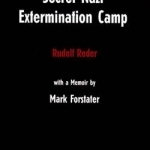
I Survived a Secret Nazi Extermination Camp
Rudolf Reder and Mark Forstater
Book
This is the harrowing and extraordinary story of the camp at Belzec. Unlike Auschwitz, Belzec is not...

A Short Life of Kierkegaard: With Lowrie's Essay How Kierkegaard Got into English and a New Introduction by Alastair Hannay
Walter Lowrie and Alastair Hannay
Book
A small, insignificant-looking intellectual with absurdly long legs, Soren Kierkegaard (1813-1855)...
SO
Stories of Your Life: And Others
Book
Soon to be a major motion picture starring Amy Adams. This new edition of Ted Chiang's masterful...
LeftSideCut (3776 KP) rated The Mortuary Collection (2019) in Movies
Oct 16, 2020
The Mortuary Collection is the latest in a long line of Creepshow style horror anthology films, a particular sub genre that can be hard to pull off, but director Ryan Spindell rises to the challenge pretty damn well.
The short stories presented here escalate in tone and subject as the film progresses, starting off relatively fun, but getting increasingly darker and in depth. This is something that the characters comment on between the segments, showing a nice sense of self awareness, but not going over the top with it.
Some of the later stories are hard to watch at times, and are quite emotional in places, especially the one that features actress Sarah Hay as a woman in a vegetative state. It's a genuinely sad story, topped off with some fantastic creature design. An interesting mix to say the least.
The stories are all good in their own right, but are tied together with a clever twist and a satisfying conclusion.
The main character is Montgomery Dark played by a brilliant Clancy Brown. He has a proper Phantasm/Tall Man/Angus Scrimm vibe to him (definitely no accident) and is suitably creepy as this movie's story teller.
The film is pretty damn visceral, and employs both practical effects, and decent digital effects to achieve what it does. It's all looks disgustingly awesome. It also has a great music score by Mondo Boys to compliment all the creepiness.
I was pleasantly surprised by The Mortuary Collection. It's a good time, a competent anthology film, and well worth a watch for horror fans.
The short stories presented here escalate in tone and subject as the film progresses, starting off relatively fun, but getting increasingly darker and in depth. This is something that the characters comment on between the segments, showing a nice sense of self awareness, but not going over the top with it.
Some of the later stories are hard to watch at times, and are quite emotional in places, especially the one that features actress Sarah Hay as a woman in a vegetative state. It's a genuinely sad story, topped off with some fantastic creature design. An interesting mix to say the least.
The stories are all good in their own right, but are tied together with a clever twist and a satisfying conclusion.
The main character is Montgomery Dark played by a brilliant Clancy Brown. He has a proper Phantasm/Tall Man/Angus Scrimm vibe to him (definitely no accident) and is suitably creepy as this movie's story teller.
The film is pretty damn visceral, and employs both practical effects, and decent digital effects to achieve what it does. It's all looks disgustingly awesome. It also has a great music score by Mondo Boys to compliment all the creepiness.
I was pleasantly surprised by The Mortuary Collection. It's a good time, a competent anthology film, and well worth a watch for horror fans.
Christine A. (965 KP) rated The Game in Books
Aug 4, 2020
I was provided with a complimentary copy of this book so I could give an honest review. The opinions are entirely my own, and any quotes are taken from the ARC and may be different in the final published copy.
The game is known by many names - Assassin, Tag, Human vs. Zombies. The ways to "kill" vary greatly - water gun, dart gun, steal a spoon, steal a rag, etc. The one constant is the concept of the game - people join a game in which someone is ordered to "kill" either a specific target or a different team. The winner is the one left standing.
The Game by Linsey Miller is a YA version of a 1982 movie, Tag: The Assininasion Game. In both, the game becomes deadly, when one of the players decides to "kill" the players in real life.
Miller moves the age group to High School seniors playing the yearly game before graduation. Lia has been following in her brother's shadow and knows Assassin is her opportunity to outshine her brother's record in the game. She has been planning this for years by following and gathering information about her classmates' schedules, hobbies, paths to school, etc. She makes the perfect fall guy for a killer who uses Lia's detailed notes to track down their targets.
Readers in middle school would enjoy the story. While enjoyable, the story felt short and would need "more" to attract older YA readers.
This 200-word review was published on Philomathinphila.com on 8/3/20.
The game is known by many names - Assassin, Tag, Human vs. Zombies. The ways to "kill" vary greatly - water gun, dart gun, steal a spoon, steal a rag, etc. The one constant is the concept of the game - people join a game in which someone is ordered to "kill" either a specific target or a different team. The winner is the one left standing.
The Game by Linsey Miller is a YA version of a 1982 movie, Tag: The Assininasion Game. In both, the game becomes deadly, when one of the players decides to "kill" the players in real life.
Miller moves the age group to High School seniors playing the yearly game before graduation. Lia has been following in her brother's shadow and knows Assassin is her opportunity to outshine her brother's record in the game. She has been planning this for years by following and gathering information about her classmates' schedules, hobbies, paths to school, etc. She makes the perfect fall guy for a killer who uses Lia's detailed notes to track down their targets.
Readers in middle school would enjoy the story. While enjoyable, the story felt short and would need "more" to attract older YA readers.
This 200-word review was published on Philomathinphila.com on 8/3/20.
Laura Doe (1350 KP) rated Never Never in Books
Oct 23, 2022
Serena Valentino’s books are amazing. This is the story of Captain Hook that I never knew that I needed.
We find out how Captain Hook learnt of Neverland in the first place… when he was a child he fell out of his pram and ended up in Neverland. He then spent the rest of his childhood years trying to get back there, when he realised he couldn’t, he decided that he was going to become and pirate and spent all of his years in school learning everything there was to know about pirates and ships so that when he graduated, he could join up and live out his dream.
This book not only gives us a backstory about Captain Hook, but we also have some pirate tales added in, with stories of Blackbeard, Calico Jack, Anne Bonny and Mary Read. This just helps to give the book a little more depth around the backstory.
We also get to revisit Circe and Lucinda again, with Lucinda being as deceitful as ever and Circe still trying to fix everything her mothers have messed up. Although I didn’t see the twist at the end coming, but that just made the book better in my opinion.
Although it’s a short book, I didn’t feel like the story was rushed in the slightest. And as with all of the other villains books, I started to feel some sympathy towards Captain Hook and understood how he became the person that he is in Peter Pan.
We find out how Captain Hook learnt of Neverland in the first place… when he was a child he fell out of his pram and ended up in Neverland. He then spent the rest of his childhood years trying to get back there, when he realised he couldn’t, he decided that he was going to become and pirate and spent all of his years in school learning everything there was to know about pirates and ships so that when he graduated, he could join up and live out his dream.
This book not only gives us a backstory about Captain Hook, but we also have some pirate tales added in, with stories of Blackbeard, Calico Jack, Anne Bonny and Mary Read. This just helps to give the book a little more depth around the backstory.
We also get to revisit Circe and Lucinda again, with Lucinda being as deceitful as ever and Circe still trying to fix everything her mothers have messed up. Although I didn’t see the twist at the end coming, but that just made the book better in my opinion.
Although it’s a short book, I didn’t feel like the story was rushed in the slightest. And as with all of the other villains books, I started to feel some sympathy towards Captain Hook and understood how he became the person that he is in Peter Pan.

